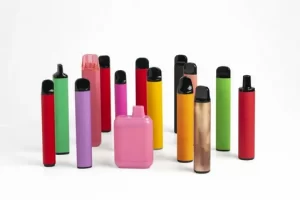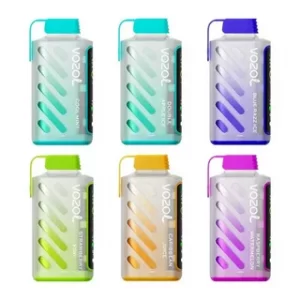Essential Guide to RV Water Heaters: Everything You Need to Know

A reliable RV water heater is essential for anyone who enjoys road trips, camping, or full-time RV living. Whether you need hot water for showering, washing dishes, or other daily tasks, having the right water heating system can significantly enhance your comfort and convenience.
If you’re looking for a dependable RV water heater, it’s important to understand the different types, fuel options, maintenance requirements, and efficiency factors to find the best fit for your needs. This guide will cover everything you need to know to make an informed decision.
1. Types of RV Water Heaters
RV water heaters come in various models, each designed to meet different needs and preferences. Understanding the different types will help you choose the most suitable option for your lifestyle.
1.1 Tank-Based RV Water Heaters
These traditional water heaters store and heat a specific amount of water, typically ranging from 6 to 10 gallons. They work similarly to household water heaters but on a smaller scale.
Pros:
- Simple to use and widely available.
- Lower initial cost compared to tankless models.
- Can operate on propane, electricity, or both.
Cons:
- Limited hot water supply; once the tank runs out, you must wait for it to reheat.
- Can take up more space inside your RV.
1.2 Tankless RV Water Heaters
Tankless or on-demand water heaters heat water only when needed, eliminating the need for a storage tank.
Pros:
- Provides continuous hot water.
- More energy-efficient since it only heats water as needed.
- Saves space due to its compact design.
Cons:
- Higher upfront cost than tank-based models.
- May require more powerful propane or electric connections for operation.
2. Fuel Options for RV Water Heaters
RV water heaters can run on different types of fuel, each with its own advantages and drawbacks.
2.1 Propane RV Water Heaters
- Most common fuel source for RV water heaters.
- Ideal for boondocking or off-grid camping since it doesn’t require electricity.
- Provides consistent heating but requires regular propane refills.
2.2 Electric RV Water Heaters
- Suitable for campsites with shore power connections.
- More energy-efficient in locations with free electricity.
- Slower heating time compared to propane models.
2.3 Hybrid RV Water Heaters (Propane + Electric)
- Offer flexibility to switch between power sources.
- Ideal for those who camp in different locations with varying energy availability.
- More expensive but provides greater convenience.
3. How to Choose the Right RV Water Heater
Selecting the best RV water heater depends on several factors, including your travel style, budget, and energy sources.
3.1 Consider Your Hot Water Needs
- If you travel with a family or use a lot of hot water, a tankless system may be the best choice.
- If you take quick showers and use minimal hot water, a 6- to 10-gallon tank water heater might be sufficient.
3.2 Evaluate Available Space
- Tankless models save space, which is ideal for smaller RVs.
- Traditional tank water heaters require more room for installation.
3.3 Look at Energy Efficiency
- Tankless models are generally more efficient since they only heat water when needed.
- Electric heaters can be more cost-effective when camping at sites with free hookups.
4. Maintenance Tips for RV Water Heaters
Regular maintenance helps extend the life of your RV water heater and ensures it functions efficiently.
4.1 Drain and Flush the Tank
- If you have a tank water heater, drain and flush it periodically to remove sediment buildup.
- Use a vinegar-water solution to clean the inside and prevent mineral deposits.
4.2 Inspect the Anode Rod
- The anode rod prevents corrosion inside tank water heaters.
- Check and replace it when it shows significant wear.
4.3 Check for Leaks and Rust
- Inspect the heater for any leaks or rust around the tank and fittings.
- Address minor issues early to prevent costly repairs.
4.4 Test the Heating Elements
- For electric heaters, ensure the heating element is functioning properly.
- If the water isn’t getting hot enough, the heating element may need replacement.
5. Common Issues and Troubleshooting
Even with proper maintenance, you may encounter some issues with your RV water heater. Here are common problems and solutions:
5.1 No Hot Water
Possible Causes:
- Empty propane tank.
- Tripped circuit breaker or blown fuse (electric models).
- Faulty thermostat or heating element.
Solution:
- Refill or replace the propane tank.
- Reset the circuit breaker.
- Inspect the thermostat and heating element for damage.
5.2 Water Not Getting Hot Enough
Possible Causes:
- Mineral buildup inside the tank.
- Malfunctioning heating element or burner.
- Thermostat set too low.
Solution:
- Flush the tank to remove sediment.
- Adjust the thermostat to a higher setting.
- Check and replace faulty components if needed.
5.3 Strange Smell or Discolored Water
Possible Causes:
- Bacteria or sulfur buildup inside the tank.
- Corroded anode rod.
Solution:
- Flush the tank with a vinegar-water solution.
- Replace the anode rod if necessary.
Conclusion
A well-functioning RV water heater is a crucial component of a comfortable and convenient RV lifestyle. Whether you choose a traditional tank model or a tankless system, selecting the right heater depends on factors such as fuel type, space, energy efficiency, and hot water demand. Regular maintenance and troubleshooting can ensure your system lasts for years, providing reliable hot water wherever your travels take you.




